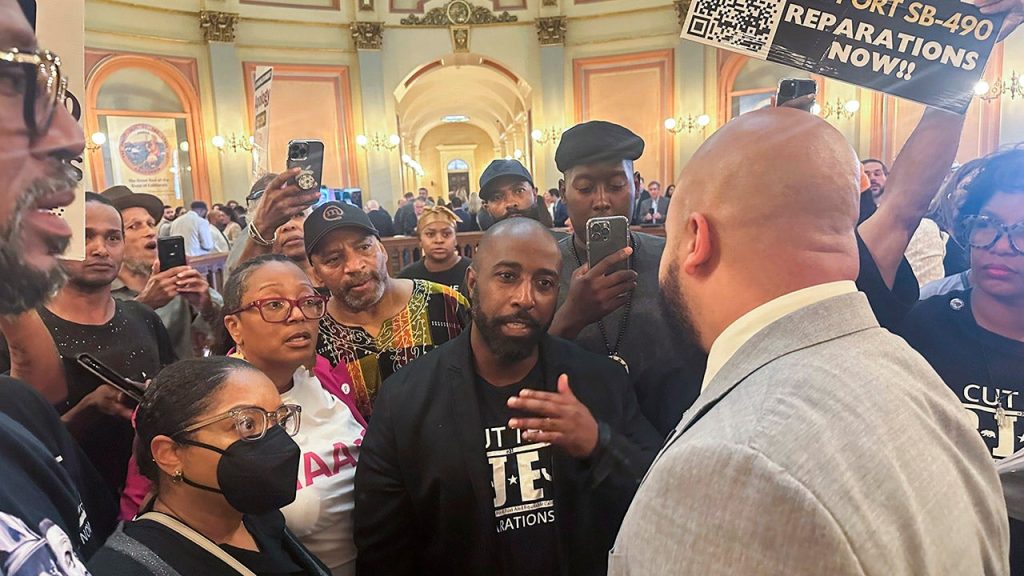Black activists at the California assembly threatened a “direct impact” on Vice President Harris’ presidential campaign after state Democratic lawmakers held off on two bills that would have greenlighted slavery reparations. Previous legislation had been passed by the California legislature allowing for the return of land or compensation to families whose property was unjustly seized by the government and issuing a formal apology for laws and practices that have harmed Black people. However, none of those bills would provide widespread direct payments to African Americans. After intense debate and protests, state lawmakers ultimately left out two bills that would have created a fund and an agency to oversee reparation measures, leading to backlash from activists who demanded immediate action.
State Sen. Steven Bradford, who authored the failed bills, expressed disappointment that the measures did not move forward due to fears that Democratic California Gov. Gavin Newsom would veto them. The Black Caucus Chair Assemblymember Lori Wilson stated that the proposals needed more work and that the group knew from the beginning it would be a challenging and multiyear effort. Activists called on Governor Newsom to step in and support the bills, emphasizing the importance of fulfilling a commitment to the descendants of chattel slavery and moving the legislation forward. Newsom has until the end of September to decide whether to sign the bills that did pass.
Democratic Assemblymember Reggie Jones-Sawyer, who is Black, introduced a bill to issue a formal apology for discrimination, drawing from his personal connection to the civil rights movement. Jones-Sawyer’s uncle was among the “Little Rock Nine,” a group of Black students who faced violent resistance while integrating Central High School in Arkansas. Governor Newsom approved a law in 2020 creating a task force to study reparations proposals, leading the way for other states to follow suit. New York and Illinois have since implemented similar legislation, with California’s task force releasing a final report with over 100 recommendations for lawmakers.
Activists have been pushing for legislation that aims to address racial disparities in education and student outcomes. Governor Newsom signed a law earlier this summer requiring school districts participating in career education programs to gather data on student performance by race and gender. This legislation, part of a larger reparations package supported by the California Legislative Black Caucus, is intended to help bridge gaps in student success. While Newsom has not yet taken a stance on most of the reparations bills, he has allocated funding for reparations in the state budget, indicating a commitment to addressing historical injustices.
The delay in passing reparations legislation in California has sparked outrage among Black activists and lawmakers who see the bills as a necessary step in rectifying past harms and systemic discrimination. Calls for immediate action have intensified, with activists warning of consequences for Governor Newsom and Vice President Harris’s political campaigns if the bills are not brought forward. As the debate continues, the California Legislative Black Caucus and supporters of reparations are determined to see the measures through, emphasizing the importance of honoring the legacy of those who have fought for civil rights and equality in the state.













